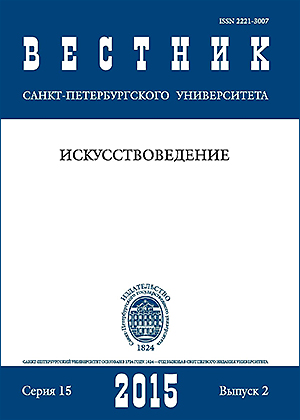Expressible and inexpressible elements of the 20th century narrative and musical anti-narrative practices: Ada by V. Nabokov and New Music
Abstract
The aim of this article is to identify some similar characteristics of the narrative by Vladimir Nabokov (his novel Ada or Ardour) and anti-narrative practices of New Music which have similar philosophical and aesthetic features. The authors are turning to the dilemma of whether the language of music is speech, as well as to a variety of musical and semantic systems such as baroque rhetorical figures for the correlation of music and speech patterns in the concept of inner speech by Vygotstky. New music is associated with texture and rhythmic accents, interest in the sound, heterogeneity, all of which are characteristic of the texts by Nabokov. Authors are also interested in lexical richness and metaphorical multilingualism occurring in the New Music. The conclusion of the authors is in finding common grounds in terms of the artistic sense, which in literature manifests itself as an attempt to render meanings not only by word but “through the word” and in the New Music as a conscious rejection of the narrative.
Keywords:
New Music, S. Sciarrino, V. Nabokov, anti-narrative, artistic sense, anti-rhetoric
Downloads
References
Downloads
Published
How to Cite
Issue
Section
License
Articles of "Vestnik of Saint Petersburg University. Arts" are open access distributed under the terms of the License Agreement with Saint Petersburg State University, which permits to the authors unrestricted distribution and self-archiving free of charge.






